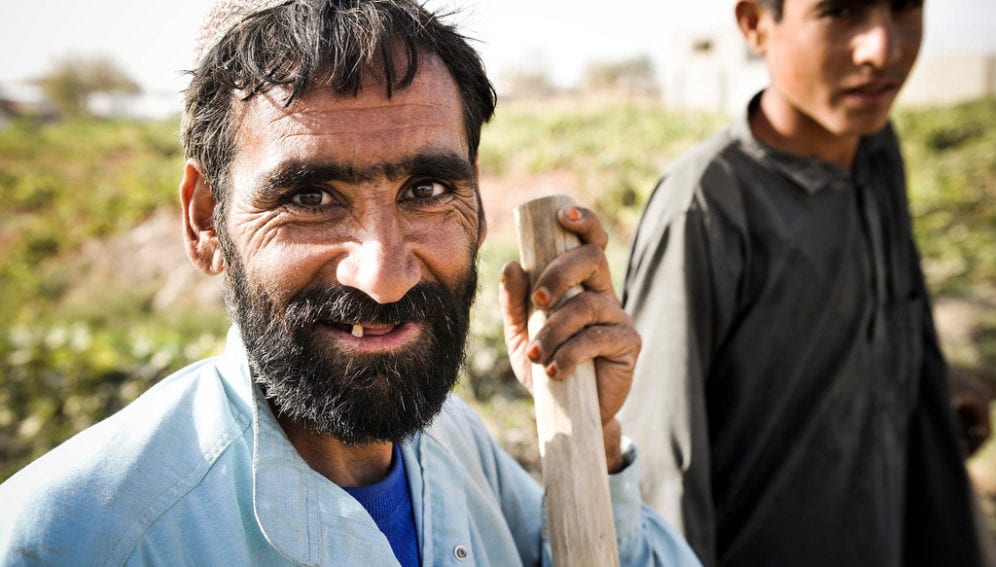By: Lou Del Bello
Send to a friend
The details you provide on this page will not be used to send unsolicited email, and will not be sold to a 3rd party. See privacy policy.
Farmers in developing countries could take advantage of the emerging field of precision farming without needing the expensive technology usually associated with it, a geostatistics expert says.
Crop yields could be improved by applying traditional knowledge to mirror precision techniques such as using the satellite Global Positioning System (GPS) to analyse farm land, says Margaret Oliver, a visiting research fellow at the University of Reading's Soil Research Centre in the United Kingdom.
In a paper in Significance, she says geostatistical analyses of data from sensors both on land and from satellites are "becoming increasingly standard for all kinds of crop production and will be of crucial importance in the near future as the world faces increasing issues of food security".
Such data can be used to build a map of soil biochemistry, which can help farmers improve crop yields and resistance to disease. The cost of technology, which can also include high-tech farming machinery, has so far kept precision farming methods mostly in developed nations, although emerging economies are taking it up.
But Oliver says smallholder farmers can instead apply their traditional knowledge. "By working on the same area for years, they can map the soil like GPS would do, knowing which corners are more or less productive, which are drier or wetter," she tells SciDev.Net.
They can then spread manure in the best places, design more targeted irrigation systems and plant seeds where the soil is more fertile.
"In the developing world, farming is more about knowledge, which is shared within the community, than expensive machinery," adds Oliver.
She believes a first step towards combining traditional and precision agriculture should be education.
"Farmers should be helped to realise how much can be done by simply adjusting some of their usual practices, like watering or spreading manure on fields," she says. "Education on precision farming should be part of the aid programmes already in place, and cost would be minimal compared with expensive machinery."
Matteo Zucchelli, a sales manager at Trimble, a company supplying technology for precision farming, says that while yield improvements can be achieved without expensive machinery on a small scale, the main potential for the developing world and for emerging economies is large-scale change, which requires investment in technology.
"In Latin America high-tech precision farming is widespread by now because the economies of these countries is more industrialised and investors can afford the machinery," Zucchelli says. "But the approach may vary depending on the context."
In Brazil, for example, "the gross domestic product is in constant growth, due to industrial agriculture and manufacturing. However, in Africa the situation is probably different and a small-scale approach, which relies on traditional knowledge instead of technology, might suit local economies best, even though the positive effects will be reduced," Zucchelli says.
References
Significance doi: 10.1111/j.1740–9713.2013.00646.x (2013)














